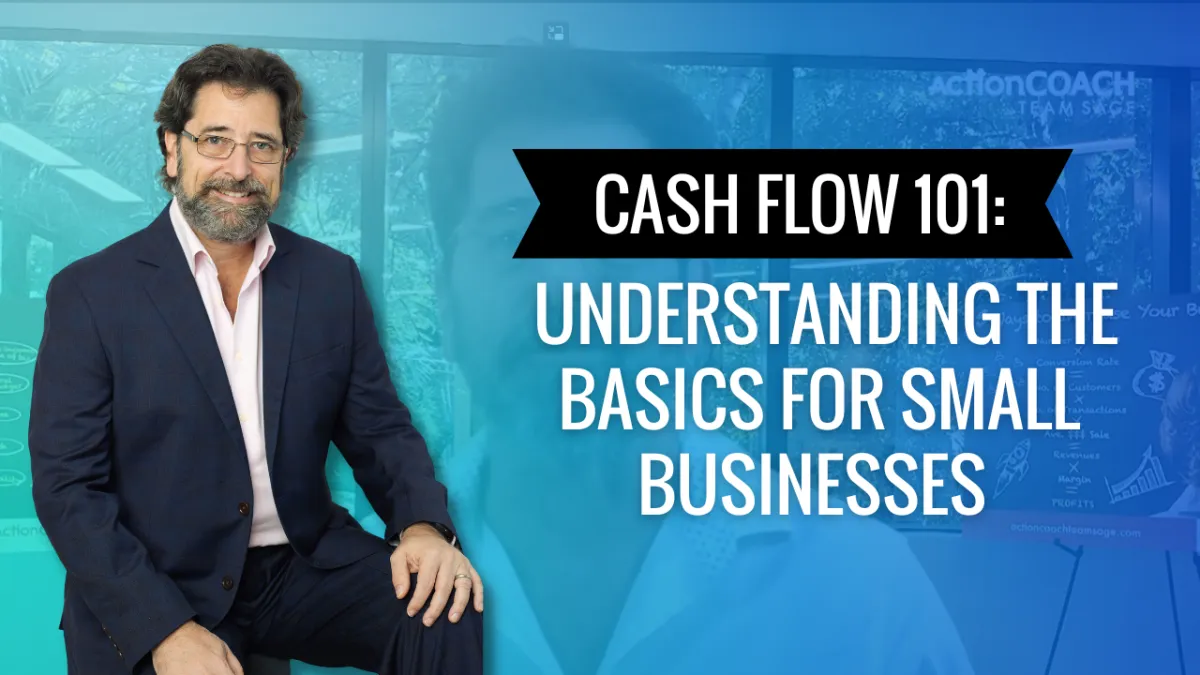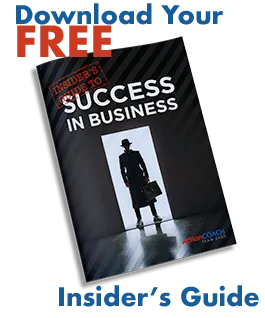OUR BLOG
"When You Believe in Your Vision and Dreams,
They Attract the Necessary Resources to Realize Them"
- Jody Johnson

Cash Flow 101: Understanding the Basics for Small Businesses
Transcription:
Are you a small business owner struggling to understand the basics of cashflow? In this video, you'll discover how to manage and increase your cashflow to sustain your local business in the long run. Get ready for valuable tips on understanding and mastering small business cashflow! Stay tuned!
Are you a hardworking local, small business owner who wants to prove to yourself that you can be successful?
Then you've come to the right place! As a small business owner, you know that cashflow is essential to the success of your business. But understanding the basics of cash flow can be overwhelming and confusing. You may have heard about common cash flow issues like slow-paying customers or unexpected expenses, but you don't know how to manage them or increase your cashflow.
In this video, I will help you understand the basics of small business cash flow so that you can make informed decisions and sustain your local business in the long run. Welcome to Cash Flow 101! We'll dive deep into the basics of cash flow and how it can make or break your business. So if you're ready to get serious about your financial future, let's get to it!
Cash flow is the lifeblood of any small business, and understanding the basics is essential to success. For starters, tracking your expenses is important and ensuring you're not wasting money. Every dollar counts when you're a small business owner, so it's essential to be mindful of your spending.
Tracking your expenses is an integral part of managing cash flow. It helps you better understand how much money is going out each month, even each week, and identify any unnecessary expenses that can be cut. You should start by creating a budget for your business that includes all your expected income and expenses, both fixed and variable. This will help you stay on track with your spending and make it easier to track progress over time. You should also set aside some monthly funds for unexpected costs, such as repairs or emergency services, so you're prepared if something goes wrong. Additionally, it's helpful to set aside funds for taxes or other liabilities so you don't get caught off guard when the time comes.
It's also helpful to categorize your expenses into different buckets like rent, supplies, marketing, etc., to better understand where your money is going. This can help you pinpoint areas where you should invest more or less to maximize profits. Tracking every dollar spent using an accounting software program or a spreadsheet, I recommend the Asset Accounting Program can give you a clear picture of your monthly cashflow and help you make informed decisions about future investments.
Finally, it's essential to review your finances regularly and find ways to reduce costs without sacrificing service or product quality. By doing this regularly, you can save yourself money while ensuring that the products and services offered by your business remain top-notch.
Also, it's essential to keep track of your income so that you can always know your financial position. Keeping detailed records of all your income sources will help you identify growth opportunities and determine whether or not your business is on track to meet its financial goals.
It's also vital for small business owners to understand the different types of cash flow and their impact on the success of their businesses. Positive cash flow means more money is coming in than going out each month, while negative cash flow means less money is coming in than going out. Positive cash flow is essential for sustaining your small business over time, allowing you to invest funds into new projects and initiatives. On the other hand, negative cash flow can put a strain on your business's finances and limit growth in the future.
To say this in another way, when we're an employee, we are typically looking for our income and our expenses to be about even, hopefully, a little bit more income so we can save, but many times, we even allow more expenses and run up the credit card bills. As an entrepreneur, we are looking for our income to be more like a big gap with our income being much more than our expenses, so we have plenty of profit to invest.
A solid understanding of these concepts will help small business owners make informed decisions about investing their funds and managing their expenses. Additionally, setting realistic financial goals and tracking progress regularly will help ensure they take the proper steps toward achieving them.
Finally, many local strategies are available for increasing cash flow, such as offering discounts or incentives for customers who pay early or introducing payment plans for larger purchases. It's also helpful to consider things like inventory management or cost reduction strategies that can help free up additional monthly funds for reinvestment into the business. Implementing these strategies can help small business owners create more positive cash flow and increase their chances of long-term success!
When managing cash flow, small business owners need to closely monitor the current market and consider how economic changes may affect their finances. For example, if the cost of goods increases, it may be difficult for businesses to maintain their profit margins without increasing prices. Similarly, if customer demand decreases due to economic slowdowns or recessions, it could lead to fewer sales and reduced profits.
It's also essential for small business owners to stay-up-to-date on current laws and regulations surrounding cash flow management. For instance, certain jurisdictions may have different requirements for tracking expenses or implementing strategies like payment plans or discounts that could increase cash flow. Understanding these requirements can help businesses avoid costly legal issues and ensure they comply with local laws.
Finally, there are many resources available that can help small business owners better understand and manage their cash flow. Professional advisors such as CPAs or financial planners can provide valuable insights into the potential risks of operating a small business and suggest ways to mitigate those risks.
Additionally, there are many online courses or books available that can teach entrepreneurs valuable skills related to cash flow management, such as budgeting or forecasting techniques. By taking advantage of these resources, small business owners can gain a more comprehensive understanding of cashflow and make informed decisions about how best to sustain their businesses. In the long run. And, a shameless pitch here, you will learn valuable skills regarding cash flow management and other aspects of business success when you register for the 3 Dangerous Pitfalls web class by clicking the link in the description. I could easily charge thousands of dollars for the information shared in this web class, but I want you to have it because I want you to have everything you need to be successful.
Cash flow forecasting is one of the most effective tools for managing cash flow. This technique involves predicting how much money will be coming in and going out each month or even each week based on past trends, what you know is coming up in your business and current market conditions. This analysis can help you anticipate potential changes in your financial standing, such as fluctuating income, unexpected expenses, and prepare accordingly.
Cashflow forecasting can also help small businesses identify avenues for growth and assess the potential profitability of new projects or investments. By providing an accurate projection of future revenues, this tool can help entrepreneurs make informed decisions about allocating funds and planning for the future. Additionally, it creates visibility into short-term financial needs and enables businesses to acquire financing quickly.
Another helpful tool for cash flow management is budgeting software. This type of program allows owners to create detailed budgets with income, expenses, payments due, and more to understand their overall financial situation better. Budgeting software also provides valuable insights into spending habits by helping track where the money goes each month. This can provide valuable information about which areas are overspending or underspending so that corrective actions can be taken quickly to maintain positive cash flow and prevent major disruptions in business operations.
Finally, small business owners should implement financial discipline when managing cash flow. Developing a clear budget with goals outlined for each month will ensure the business is sticking to its plan and achieving its desired outcomes. Setting limits on discretionary spending as well as instituting processes like invoice reminders or automated payments can also help keep finances organized while avoiding costly late fees or penalties associated with missed payments.
By utilizing tools like cash flow forecasting and budgeting software and incorporating intelligent strategies such as discipline spending habits, you can gain greater control over your finances and take actionable steps toward increasing your chances of long-term success!
As you can see, many factors go into managing your cash flow. That's why staying current on the latest trends and strategies is essential. But if you're not sure where to start, don't worry!
Cash flow management is crucial to the success of any small business. That's why we're offering a FREE web class to help you avoid the three dangerous pitfalls all small business owners face. So if you're serious about taking your business to the next level, sign up for our FREE web class by clicking the link in the description. Don't wait - register now and take control of your financial future today!
Remember, cash flow is the lifeblood of your business, so make sure you understand the basics and stay up to date on the latest trends.
I know firsthand how vital cashflow is for small businesses! I started my own business many years ago and struggled with cash flow. One of the main issues I faced was managing payments due from customers, many of whom would delay or miss payments entirely. This made it difficult to predict our financial situation, which made it hard to make long-term plans.
Thanks to the strategies in this video that I learned, such as cash flow forecasting and budgeting tools, I was able to gain more control over our finances and increase our ability to plan ahead. We also implemented stricter payment policies that helped us avoid late fees and other costly penalties associated with missed payments.
My experience has taught me that having a solid understanding of cash flow basics is invaluable for any small business owner who wants to achieve long-term success. If you are facing similar challenges, please feel free to leave a comment below with your experiences - both good and bad - so we can all learn from each other!
Would you like to learn more about Cash Flow Management or other topics regarding business success?
Yes! Great! Then there are a few things that you need to do right now. First, please like this video, so I know you got value, and I'll make more videos like this one. Second, subscribe to this channel and click the bell to get notified whenever we post a new video so that you don't miss a single piece of the valuable information we share.
I'm Doug Barra. I believe it takes great courage to own a local small business. For the last 16 years, I've ensured that business owners like yourself get the time, money, and freedom you deserve. And don't forget to sign up for our free web class by clicking the link from the description. Thanks for watching, and I'll see you next time!






Facebook
Instagram
X
LinkedIn
Youtube
TikTok